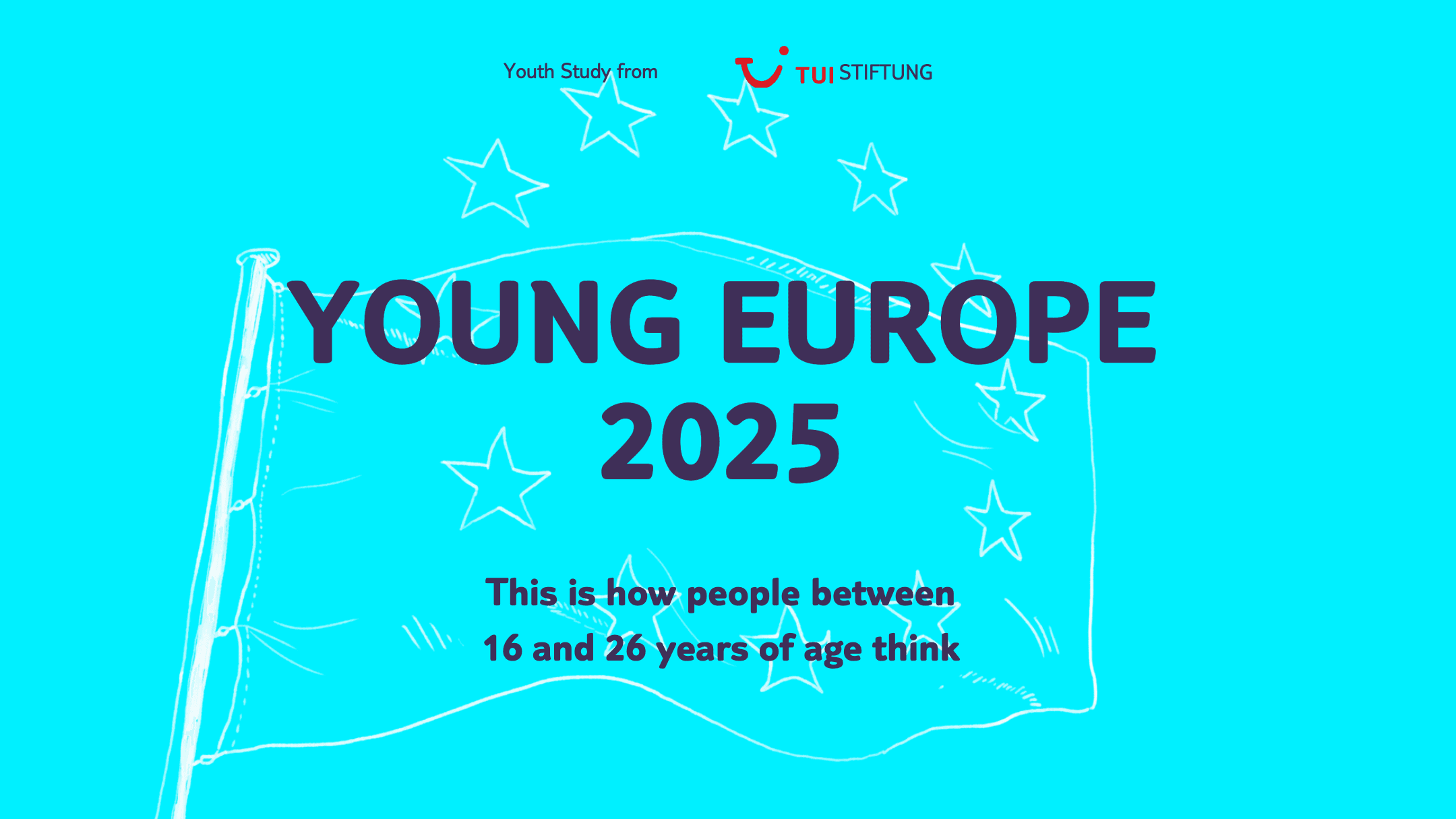AI-Generated Summary
Context and Purpose
The "Young Europe 2025 - Youth Study" was conducted by TUI Stiftung, an organization dedicated to reinforcing the European idea through various educational and developmental projects. The study aims to understand the living environment, identity, and political attitudes of young people across Europe, specifically those aged 16 to 26.
Study Overview
The study surveyed 6,703 young individuals from Germany, France, Spain, Italy, Greece, Poland, and the United Kingdom between April and May 2025. This survey is part of a series that began in 2017, highlighting how perceptions of the EU and its role have evolved over time. The methodology involved representative quota sampling based on official statistics, ensuring a balanced representation across age, gender, and education. 🇪🇺 Perception of the EU A significant finding indicates that nearly 59% of young Europeans identify as at least partially European, with the highest recognition in Germany (68%). The study reveals a positive perception of EU membership, particularly in Germany (80%) and the UK (73%). Furthermore, 42% of young respondents desire stronger EU integration, although many remain skeptical about its feasibility.
Political Engagement and Issues
Young Europeans are increasingly concerned about issues such as migration and asylum (37%), economy and financial policy (33%), and climate protection (28%). However, there is a notable gap between the desire for stronger EU integration and the belief that it will actually occur in the next five years. A significant portion of respondents view the EU as not entirely democratic, with 39% expressing dissatisfaction with the current political system.
Views on Democracy
The study illustrates a fragile commitment to democracy among young people, with varying satisfaction levels across countries. In Germany, 71% of young people prefer democracy compared to 48% in Poland. Approximately 61% of young Germans perceive democracy as being at risk, reflecting a broader concern among youth about political stability.
Emotional State and Future Outlook
Young Europeans generally describe their emotional state positively, with many feeling optimistic about their personal futures. However, a significant portion of respondents also perceive the emotional state of their peers as negative, indicating a complex interplay between personal feelings and societal conditions.
Role Models and Safety Concerns
Parents are the most common role models among young people, although a notable percentage report having no role models. Safety perceptions vary significantly, with young people feeling safest at home and least safe in public spaces, particularly at night. Women report feeling significantly less safe than men in various situations.
Conclusion
The "Young Europe 2025" study paints a comprehensive picture of youth attitudes towards the EU, democracy, and personal well-being. It highlights the urgency for the EU to address the concerns of young people, particularly in terms of integrating their perspectives into future policies and ensuring a sustainable and inclusive European environment.
